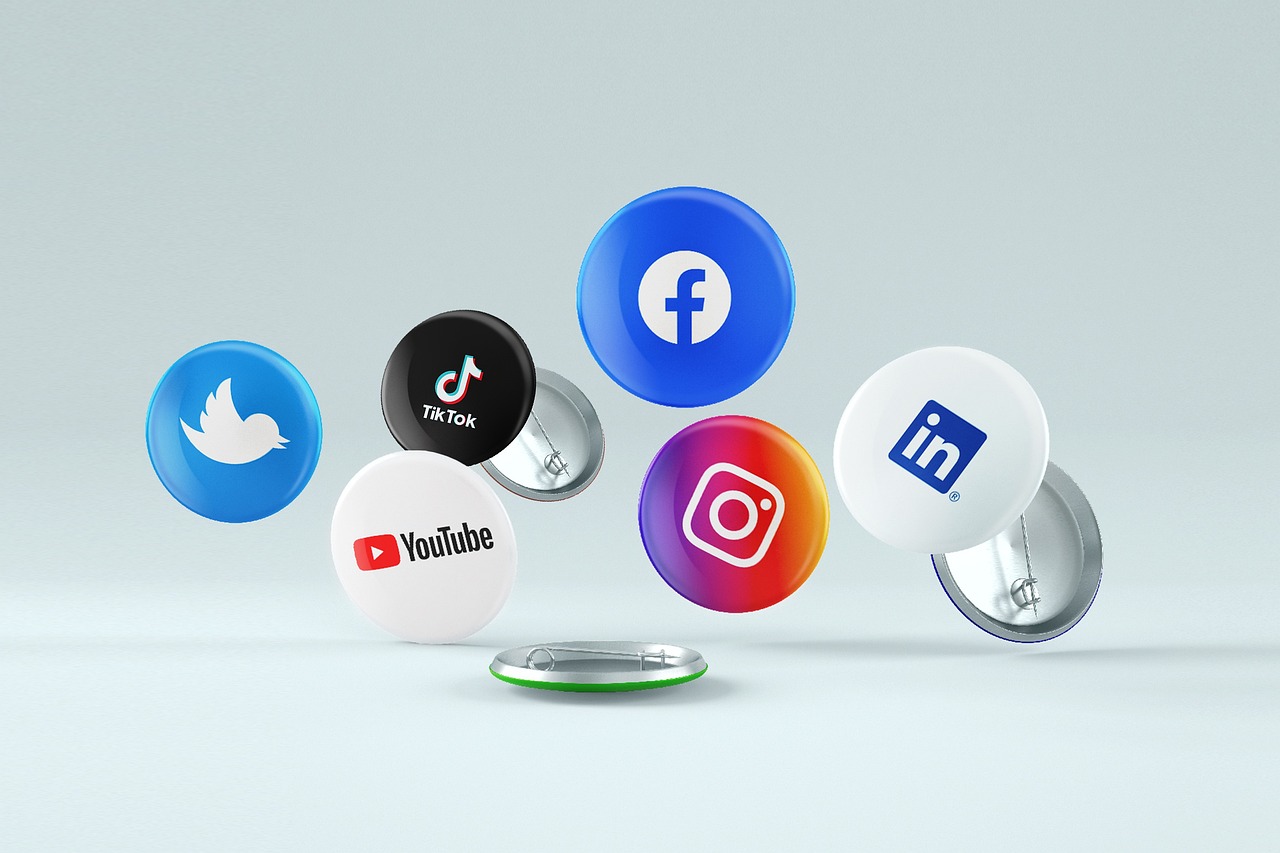Learn how to permanently delete your Facebook page in 2024, and understand the crew long-term impact of this decision.
Introduction of permanently deleting your Facebook page
Facebook has grown significantly since its launch in 2004, transforming from a simple social networking site into a global platform for individuals and businesses. For businesses, Facebook pages have become essential tools for building brand presence, engaging with customers, and driving sales. Individuals, use Facebook to connect with friends, share content, and stay informed.
However, over the years, growing concerns about privacy, changes in business strategies, or simply the need to end online life have led many people to consider deleting their Facebook pages. In 2024, as Facebook updates its platform, it’s important to understand the latest process for permanently deleting a Page.
Knowing the correct steps ensures a smooth transition, especially as platform changes can affect the deletion process. Understanding current deletion procedures is critical to making informed decisions, whether due to rebranding, inactivity, or a desire for more privacy.
2. Why Would You Want to Delete a Facebook Page?
Many users choose to delete their Facebook page for a variety of reasons, with privacy concerns at the top. As data breaches and privacy issues become more common, many people feel uneasy about the amount of personal and business information shared online. Additionally, businesses often rebrand or change focus by deprecating their old Facebook pages. Having an inactive or irrelevant page can confuse users and weaken brand identity. For others, deleting a Facebook page is a step toward improving mental health. Reducing time spent on digital platforms can promote well-being, making a digital detox an attractive option for many.

3. Difference Between Deactivating and Deleting a Facebook Page
The decision to deactivate or delete a Facebook page depends on your long-term needs. Deactivating a Facebook page is a temporary solution. When you deactivate, your page becomes invisible to the public, but the data remains, allowing you to reactivate it later if needed. This option is ideal for users who want to take a break from social media but may return in the future.

On the other hand, deleting a Facebook page is a permanent process. Once deleted, all content is removed, and there is no way to retrieve the page after the grace period. This option is perfect for people who no longer need the Page or want to permanently disconnect from Facebook. Before you decide, consider whether you want to access the page again in the future.
4. Pre-Deletion Checklist: Things to Do Before Deleting Your Facebook Page
Before you permanently delete your Facebook page, there are a few important steps to take to ensure a smooth transition. First backup all your data. Facebook allows you to download a copy of your posts, photos, videos, and other content. This step is very important, especially if you want to save your page history for future reference. Next, inform your followers about your decision to delete the page.

Give them plenty of time to connect with you on other platforms or follow your new business page if you’re rebranding. It is also important to revoke administrator roles. If you don’t remove other administrators, they may still have access, causing confusion or accidental reactivation of the page.
Finally, check for any linked accounts or active ad campaigns. Be sure to disconnect campaigns to avoid running on a page that no longer exists. These precautions ensure a seamless deletion process while keeping important data and communications safe.
5. Step-by-Step Guide to Permanently Delete Your Facebook Page (2024 Update)
To delete a Facebook page permanently, follow these simple steps. First, make sure you’re logged in to the account that manages the page you want to delete. Once logged in, go to Page Settings by selecting the “Settings” option at the top right of your page.
From there, scroll down until you find an option labeled “Remove Page”. Click it, and you’ll be prompted with a confirmation message explaining the 14-day grace period.

This period allows you to change your mind before the deletion becomes permanent. If you are sure about the deletion, click “Confirm”. After this step, your page will be deactivated immediately, and after 14 days, it will be permanently removed. Make sure you back up any data you want to keep, as there will be no way to recover it once the page is gone.
6. What Happens After You Delete Your Facebook Page?
When you delete your Facebook page, the effects are immediate and visible to your followers. As soon as a deletion request is submitted, your Page becomes inaccessible to the public, and followers can no longer view or interact with your content.
However, the process is not finalized immediately. Facebook allows you to change your mind and restore the page if needed within a 14-day grace period.

During this time, your page is hidden but not permanently deleted. If no action is taken within these 14 days, the deletion becomes permanent, and all associated data is removed. Facebook keeps your data for a short period, but once a Page is permanently deleted, your posts, photos, and other content are lost and cannot be retrieved.
This grace period gives users a final chance to reconsider, but after the two-week window, the deletion process is irreversible.
7. Common Issues When Trying to Delete a Facebook Page
When trying to delete a Facebook page, users often face several challenges that can make the process frustrating. A common problem is the settings page not showing up, which usually happens when the user is logged in with the wrong account or lacks the necessary admin privileges. To fix this, make sure you’re logged in to the account that owns the page. Go to the “Pages” section under the Facebook menu, and check that the page is listed under “Your Pages”. If the page still does not appear, you may need to verify your administrator role under the page’s “Settings” and “Page Roles” sections.

Admin access issues are another frequent hurdle. If you are not a primary administrator, or if you have lost access to the administrator role, you will not be able to delete the page. To fix this, check the “Page Roles” section to see who has administrator rights. If possible, contact the current administrator and request that they restore your access or delete the page on your behalf. If the current administrator is inactive or unresponsive, Facebook’s Help Center can provide further assistance.
Finally, users sometimes experience problems due to linked apps or services, such as Instagram or WhatsApp accounts linked to a Facebook page. Before deleting the page, be sure to disconnect these accounts by going to “Settings” > “Instagram” or “WhatsApp” and removing the integration. Failure to do so may prevent the deletion process from completing or may cause unexpected problems with connected accounts later. By following these steps, you can ensure a smooth process when trying to delete your Facebook page.
8. Recovering a Page: What to Do if You Change Your Mind During the Grace Period
If you decide to delete your Facebook page but later have second thoughts, Facebook provides a 14-day grace period during which you can recover your page before it’s permanently removed. To reverse the deletion, follow these steps:
- Log Into Your Facebook Account: Use the same account that was used to delete the page.
- Navigate to the Page Settings: From your homepage, go to “Pages” and select the page you’ve scheduled for deletion.
- Access Page Deletion Notice: At the top of the page, you’ll see a notification indicating the deletion request. Click on this notification.
- Cancel Deletion Request: Follow the prompts to cancel the deletion. Facebook will ask you to confirm this action.
- Verify the Page is Restored: Once you’ve canceled the deletion, your page will be restored immediately, and you can continue managing it as usual.
Remember, this grace period is your only window to reverse the deletion. After 14 days, the page and all its data will be permanently removed, and recovery will no longer be possible. Therefore, if you’re unsure, it’s always a good idea to act within the grace period to keep your options open.
9. Alternative Solutions to Deleting Your Facebook Page
If you’re contemplating the deletion of your Facebook page but are unsure about making a permanent decision, there are several alternative solutions you can consider. First, deactivating your page offers a less permanent option, allowing you to step away without losing your content or followers; this can be a great choice if you need a break or are reevaluating your online presence.
Additionally, if you manage multiple pages that share similar content or audiences, merging them can streamline your efforts and consolidate your following, providing a unified brand experience without losing any engagement.
Finally, archiving content is an effective way to hide specific posts, photos, or information from public view without fully deleting the page; this allows you to manage your visibility while keeping your content accessible for future use. By exploring these alternatives, you can maintain control over your digital footprint while making informed decisions about your Facebook presence.
10. Impact on Your Facebook Business Account
When considering the deletion of your Facebook business page, it’s crucial to understand the implications for your ongoing advertising campaigns. Deleting a page can halt active ad campaigns, potentially leading to wasted budget and missed opportunities. Therefore, before initiating the deletion process, take the time to pause or conclude any active ads to prevent unexpected charges.
Additionally, if your Facebook page is linked to an Instagram account, deleting the page may disrupt your Instagram marketing efforts, potentially leading to the loss of integrated features like shopping or cross-promotional posts. However, there are alternative ways to sustain your brand’s online presence.
Consider utilizing other social media platforms or creating a simplified website to maintain engagement with your audience. By strategically managing your digital footprint, you can ensure that your brand continues to resonate with your target market, even in the absence of a Facebook page.
11. What to Do If You’re Unable to Delete Your Facebook Page?
If you’re facing difficulties deleting your Facebook page, there are several steps you can take to resolve the issue. First, understand that some pages are subject to restrictions due to various reasons, such as being part of a business account with active advertising campaigns or linked applications. In this case, carefully review the page settings and notifications from Facebook to identify any restrictions. If you still can’t delete the page, your next step is to contact Facebook Support for assistance.
To do this, navigate to the Help Center on Facebook, click on “Get Help,” and select the appropriate options to report your issue. Provide as much detail as possible about the restrictions you’re encountering, as this will help them assist you more effectively. Lastly, if your page has multiple admins, it’s crucial to communicate with them.
You may need to revoke permissions for other admins if they are preventing the deletion process. To do this, go to the page settings, select “Page Roles,” and remove any admins who are not cooperating. By following these steps, you can effectively troubleshoot the challenges you face in deleting your Facebook page and regain control over your digital presence.
12. FAQs About Deleting a Facebook Page
When considering deleting your Facebook page, it’s essential to understand the implications on your content and followers. After deletion, your page’s content, including posts, photos, and videos, will be permanently removed and will no longer be accessible to anyone, including you.
However, during the 14-day grace period following your deletion request, you can recover your page if you change your mind. Simply log back into your account and follow the prompts to restore it. It’s also important to note that your followers will not receive a notification about the deletion; they will simply find that your page is no longer available.
Additionally, if you have any associated Facebook Ads, deleting your page will also terminate those ads and any ongoing campaigns, so be sure to pause or adjust them beforehand to avoid unintended disruptions. Understanding these factors can help you make an informed decision about managing your Facebook presence effectively.
13. Conclusion
In summary, deleting a Facebook page is a significant decision that requires careful consideration of its implications. First, it’s essential to follow the outlined steps: backup your data, notify your followers, and ensure that you fully understand the difference between deactivation and permanent deletion.
Remember that once you delete your page, it’s gone for good after the 14-day grace period, meaning any content, followers, and brand identity associated with that page will be irretrievably lost.
This action can profoundly impact your online presence and business reputation, so it’s crucial to weigh the long-term consequences. Before proceeding, reflect on how this decision aligns with your personal or business goals and consider alternative options, such as deactivating the page or merging it with another account.
By taking the time to thoughtfully assess your choices, you can make a more informed decision that aligns with your digital strategy and future aspirations.
Also Read
1 How Can we earn from guest posting?
2 How to Grow a Blogging Website Like Boss in Easy Steps?
3; How to Increase WordPress Website Speed in 2024:
4; How to improve WordPress website security in 2024?
5; How To Start International Blog in 2024 | Step-by-Step Instructions
6; From Clicks to Cash: The Best Blog Niches for Monetization
7; What Is Image Submissions in SEO? || Benefits & Sites List
8; Best Pakistan Guest Posting Sites
9 How to Index Your Website on Google in 2024
10: How To Earn Money At Home Online In Pakistan
My name is M. Ali Sher. I am from Pakistan. I work on blogging, SEO, WordPress, and many other topics. I have about two years of experience in this field. All the information on this website related to blogging, SEO, WordPress, and Earning Money online is my personal experience. I have published many tools on this site, and some are yet to be released. They will also be available on this website soon. I have been working in blogging and SEO for a long time and as I told you, I have a lot of knowledge about it, so I want to share my knowledge with you. So that you guys can also start earning money from blogging and SEO.


